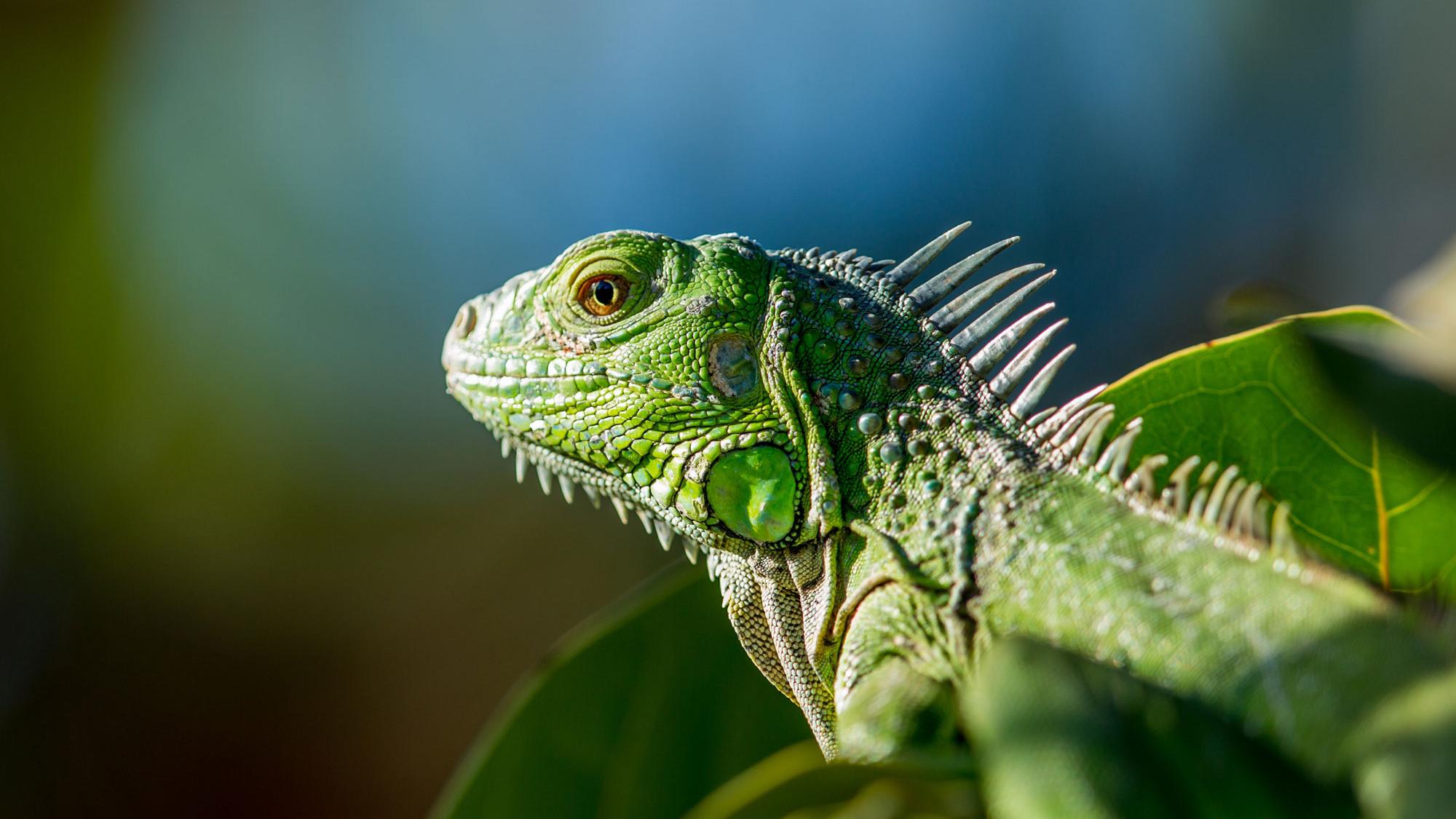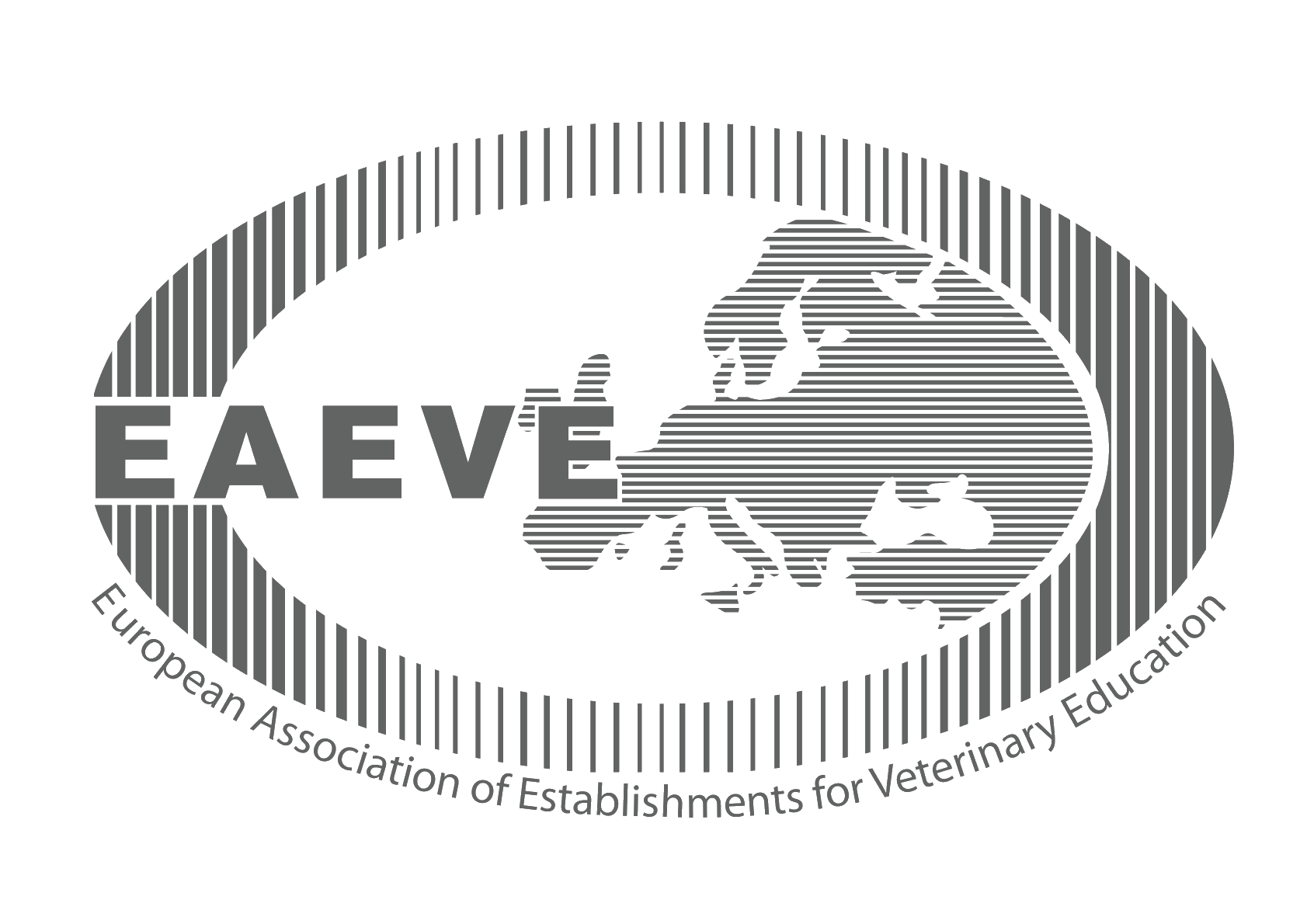The training in the field of diseases and healthcare of birds, small mammals and reptiles is a learning and educational process in which attendees acquire in-depth theoretical and practical knowledge in the field of bird, small mammal and reptile healthcare.

Diseases and Healthcare of Birds, Small Mammals and Reptiles
Introduction
The continual development of our profession and the need to introduce modern concepts into our work demand new approaches to gain additional professional knowledge. In the past decade, important changes in theoretical and practical work have been made at all levels of veterinary medicine.
Great progress has been achieved in the processes of thinking and critical reasoning, which are now based on clinical and diagnostic cognitive skills. Contemporary clinical examinations and tests are based on evidential and deductive processes. Candidates can increase their knowledge and experience and direct it towards resolving diseases of individual animals and/or the herd. The work of professionals demands that they are educated, rational, and that they demonstrate a desire for an advanced level of clinical-diagnostic and critical-thinking skills.
In veterinary medicine, the need for supplementary learning is dictated by constant developments in current knowledge and new fields influencing the quality of professional work, which indirectly affects society as a whole. The European Association of Establishments for Veterinary Education – EAEVE recommends the introduction of advanced and continual post-graduate education. Post-graduate education is also encouraged by the Slovenian representative veterinary organization (Veterinary Chamber) and numerous veterinary associations.
Advanced Training in the Diseases and Healthcare of Birds, Small Mammals and Reptiles is an educational process from which the veterinarian should gain theoretical and practical knowledge of the subject. The advanced training encompasses detailed knowledge of clinical diagnostics in the fields of hematology, clinical biochemistry, clinical virology, clinical bacteriology, clinical parasitology, X-rays, ultrasound, the use of drugs, principles of treatment, anesthesia, fluid therapy, intensive therapy, surgery and pathomorphology of birds, small mammals and reptiles. There will be special emphasis on ecology and veterinary legislation connected to these animal species.
Programme information
The Advanced Training in the Diseases and Healthcare of Birds, Small Mammals and Reptiles programme is awarded 43 European credit transfer system (ECTS) credit points and encompasses six modules, which are horizontally related. There are four mandatory modules and two electives. All modules consist of a theoretical and a practical part. The focus is on practical and individual work which comprises 92.3% of the programme content.
The study requirements are evaluated upon the basis of the European Credit Transfer System - ECTS.
Price |
6.000,00 € VAT incl. |
| ECTS (European Credit Transfer System) | 43 |
| total student's work | 1290 hours |
| modules (mandatory + elective) | 4 + 2 |
| practical work | 92,3 % |
| theoretical work | 7,7 % |
Basic objectives and competences
The basic objective of the programme is to educate highly qualified professional veterinarians in the field of diseases and health care of birds, small mammals and reptiles.
The advanced studies training programme is based on relevant scientific research and expert knowledge, with a special emphasis on practical measures. The programme is problem-oriented as it is based on actual clinical and laboratory evidence, on current animal handling techniques, and on special veterinary measures for animal health management, public health and environmental protection. Modern diagnostic procedures are applied in the programme, which demand critical thinking and reasoning, and the use of computer-based diagnostics is also encouraged.
Upon completing the programme the candidate will be able to work and apply advanced methods to the different areas of diseases and health care of birds, small mammals and reptiles, such as: clinical diagnostics in the fields of hematology, clinical biochemistry, clinical virology, clinical bacteriology, clinical parasitology, X-rays, ultrasound, the use of drugs, principles of treatment, anesthesia, fluid therapy, intensive therapy, surgery and the pathomorphology of birds, small mammals and reptiles.
In addition, students will be capable of creative analysis, integration and solving technical problems. The candidate will also acquire the ability to critically evaluate the applicability of research methods and their transfer into practice.
Average intake
The number of available places is 2 per year.
Mentorship
Candidates choose a mentor prior to the application or when applying to the programme. A mentor or co-mentor is a person with a professional or academic title and a suitable certified professional activity in the individual field. The mentor guides the candidate during his or her training.
Admission requirements
To apply for the advanced studies programme in Diseases and Healthcare of Birds, Small Mammals and Reptiles candidates shall meet the following requirements: they must hold a degree in veterinary medicine, have at least three years of work experience in this field and possess a valid licence. Candidates who have completed the degree abroad must attach a Certificate of Education Completed in a Foreign Education System.
Selection criteria for limited admission
Candidates will be considered on the basis of work experience, a letter of recommendation from a veterinary association, and their scientific and professional accomplishments. Individual elements will be evaluated upon the basis of:
Selection criteria |
Share in % |
| Work experience | 60 |
| Letter of recommendation from a veterinary association | 25 |
| Bibliography | 15 |
The admission limit is 2 candidates in accordance with Paragraph 1 of Article 41 of the Higher Education Act.
Recognition of knowledge and skills acquired prior to admission
The recognition of knowledge and skills acquired prior the admission shall be approved by the programme supervisor based on certificates and the mentor’s opinion.
Conditions for advancement and completion of the programme
The condition for advancement is the fulfilment of study obligations for all the modules. Conditions for completion of the programme are the fulfilment of all study obligations and a successful pass in the final examination. Evidence of fulfilled obligations for all modules has to be submitted by the candidate before the final exam. Candidates are expected to pass the final exam no later than two years after the fulfilment of all obligations or four years after admission to the programme.
Title acquisition
After the successful final examination, the candidate will acquire a Certificate in Advanced Professional Studies in Diseases and Healthcare of Birds, Small Mammals and Reptiles, which is an official document (in accordance with Article 88 of the Statute of University of Ljubljana) and is signed by the Dean of the Veterinary faculty of Ljubljana and the Rector of the University of Ljubljana.
Grading system
Candidates are evaluated by oral and written exams, case reports, filled-in reports and written practical training reports. The final exam, which is oral and written, is carried out in front of the three-member commission.
The aim of the written part of the exam is to check the knowledge gained during the theoretical part of the advanced study. The aim of the oral part of the exam is to check the knowledge gained during the practical work, such as: case studies, term papers, articles written by the candidate as well as knowledge gained during the theoretical part of the advanced study.
Curriculum and short content description
The programme offers six study modules, four of which are mandatory and two are elective. It consists of two parts, theoretical work (7.7%) and professional practical training (92.3%).
The advanced professional studies programme comprises the following modules:
- Diseases and Healthcare of Birds,
- Diseases and Healthcare of Small Mammals,
- Diseases and Healthcare of Reptiles
- Research Methods in Veterinary Medicine,
- Veterinary Informatics,
- Final examination.
All modules are applicable to the field of veterinary medicine.
Curriculum
| Supervisor | Module | L | LP | CP | S | F | A | I | TH | ECTS |
| Alenka Dovč Jožko Račnik |
Healthcare of Birds | 30 | 40 | 190 | 60 | 10 | 30 | 360 | 12 | |
| Alenka Dovč Jožko Račnik |
Healthcare of Small Mammals | 30 | 40 | 190 | 60 | 10 | 30 | 360 | 12 | |
| Alenka Dovč Jožko Račnik |
Healthcare of Small Reptiles | 30 | 40 | 190 | 60 | 10 | 30 | 360 | 12 | |
| Jelka Zabavnik Piano | Research Methods in Veterinary Medicine * | 10 | 10 | 10 | 30 | 60 | 120 | 4 | ||
| Jelka Zabavnik Piano | Veterinary Informatics * | 10 | 10 | 10 | 30 | 60 | 120 | 4 | ||
| Alenka Dovč Jožko Račnik |
Final exam | 90 | 3 | |||||||
| Total | 100 | 130 | 570 | 190 | 60 | 150 | 1290 | 43 |
Key: L lectures; LP laboratory-based practical classes; CP clinical practical classes; S seminars; F field work; A alternative work; I individual student’s work, TH total hours; ECTS credit points based on ECTS.
* Elective modules. Candidates must choose one.
Short review of modules
Lecturers: Alenka Dovč and Jožko Račnik (module supervisors), Marko Zadravec, Cvetka Marhold, Brigita Slavec, Uroš Krapež, Olga Zorman-Rojs
ECTS weighting: 12 credit points.
Basic course contents include following theoretical and practical contents:
- clinical anatomy and clinical physiology of birds
- clinical diagnostics in birds
- use of drugs and principles of treatment in birds
- hematology and clinical biochemistry in birds
- clinical virology, clinical bacteriology and clinical parasitology in birds
- X-rays and ultrasound in birds
- anesthesia, fluid therapy and intensive therapy in birds
- surgery in birds
- pathomorphology in birds
- ecology and veterinary legislation in birds
Lecturers: Alenka Dovč and Jožko Račnik (module supervisors), Marko Zadravec, Cvetka Marhold, Brigita Slavec, Uroš Krapež, Olga Zorman-Rojs
ECTS weighting: 12 credit points.
The basic course includes the following theoretical and practical contents:
- clinical anatomy and clinical physiology of small mammals
- clinical diagnostics in small mammals
- use of drugs and principles of treatment in small mammals
- hematology and clinical biochemistry in small mammals
- clinical virology, clinical bacteriology and clinical parasitology in small mammals
- X-rays and ultrasound in small mammals
- anesthesia, fluid therapy and intensive therapy in small mammals
- surgery in small mammals
- pathomorphology in small mammals
- ecology and veterinary legislation in small mammals
Lecturers: Alenka Dovč and Jožko Račnik (module supervisors), Marko Zadravec, Cvetka Marhold, Brigita Slavec, Uroš Krapež, Olga Zorman-Rojs
ECTS weighting: 12 credit points.
Basic course contents include following theoretical and practical contents:
- clinical anatomy and clinical physiology of reptiles
- clinical diagnostics in reptiles
- use of drugs and principles of treatment in reptiles
- hematology and clinical biochemistry in reptiles
- clinical virology, clinical bacteriology and clinical parasitology in reptiles
- X-rays and ultrasound in reptiles
- anesthesia, fluid therapy and intensive therapy in reptiles
- surgery in reptiles
- patomorphology in reptiles
- ecology and veterinary legislation in reptiles
Lecturers: Jelka Zabavnik Piano (module supervisor), Brigita Grecs Smole
ECTS weighting: 4 ECTS credit points.
The relation between experience, profession, and science; stages of the scientific research process; research methods and techniques; formulating a scientific research problem; the analysis of a scientific research article.
Lecturers: Jelka Zabavnik Piano (head lecturer), Brigita Grecs Smole
ECTS weighting: 4 ECTS credit points.
The relation between experience, profession, and science; a system of scientific and professional information; how to search for information in veterinary medicine; the formulation of a basic document; analysis of information regarding professional work.
Lecturer: Alenka Dovč and Jožko Račnik (module supervisors)
ECTS weighting: 3 credit points.
The final exam represents a synthesis of the knowledge that the candidate gained over the course of advanced training. It involves detailed knowledge in clinical diagnostics in the fields of hematology, clinical biochemistry, clinical virology, clinical bacteriology, clinical parasitology, X-ray, ultrasound, the use of drugs, principles of treatment, anesthesia, fluid therapy, intensive therapy, surgery and the pathomorphology of birds, small mammals and reptiles.
Application
Contact
Centre for Postgraduate Studies and Continuing Education
Gerbičeva 60
1000 Ljubljana
Tel: +386 1 4779 147
Fax: +386 1 283 22 43
Email: biljana.grubisic@vf.uni-lj.si
Glavna navigacija
- Informativni dan
- Why to become a veterinarian?
- Undergraduate Studies
- Postgraduate studies
- Pripravništvo
- Summer Schools
- Continuous education
- Professional Development
- International Activity
- Mednarodna dejavnost - Tuji študentje
- The Path to Creative Knowledge
- Tutoring
- Extracurricular Activities
- Career Centres
- Alumni
- Student organizations and societies
- Quality Assurance
Location
Gerbičeva 60
SI-1000 Ljubljana
Slovenija
Sample Reception
Samples are received at several locations throughout Slovenia. See where.
The veterinarian on duty
Emergency veterinary assistance for dogs and cats and a telephone number of constant readiness.
Library
A wide selection of domestic and foreign professional literature in the field of veterinary medicine and other sciences.
Main navigation
-
Education
- Informativni dan
- Why to become a veterinarian?
- Undergraduate Studies
- Postgraduate studies
- Pripravništvo
- Summer Schools
- Continuous education
- Professional Development
- International Activity
- Mednarodna dejavnost - Tuji študentje
- The Path to Creative Knowledge
- Tutoring
- Extracurricular Activities
- Career Centres
- Alumni
- Student organizations and societies
- Quality Assurance
- Clinics
- Diagnostics
- Dobrobit
- NVI
- Research
- About us
- Hub



